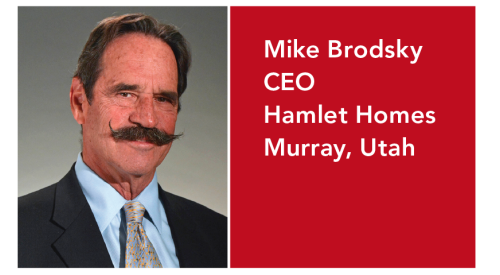| Heather McCune, Editor in Chief
|
I don’t know about you, but I admit it — I am completely confused. Everything I thought I knew about identifying and hiring talent to build a strong team is under attack. Suddenly people a whole lot smarter than I am are attacking the way most companies and a lot of home builders are structured, i.e., top performers are recognized or hired, given responsibility, and then promoted and compensated based on their accomplishments.
Sounds pretty much like the approach I’ve always used as well, but now it’s impossible to open a news magazine, turn a page in the morning paper or watch the talking heads on MSNBC or CNNfn without reading or hearing about the danger of hiring all-stars, smart people if you will. The genesis of all this conversation and debate is Enron, of course, where stars were the company’s commodity, its reason for being, as much as any product it had to trade.
Much like today — but with a very different spin — Enron was just a few years ago the business media’s favorite story, for its strategy of winning with talent. Together, Enron and its management consulting firm, McKinsey & Co., detailed in person and in print (the books The War for Talent and Creative Destruction) how hiring the very best and very brightest accomplished the goals of a modern corporation:
- decentralized decision-making
- rapid expansion potential
- quick identification of new markets
- market leadership
We all know now how the Enron story ends. So what’s right? Is the all-star mind-set the reason Enron failed? Are smart people overrated? No. Not in your business. Not in mine. Not at Enron. Why Enron failed is more complex than any one answer, but the one thing that is certain is that talented employees (equipped with a properly directed moral compass, I might add) didn’t ruin the corporation. The failure of management did — its failure to understand how to unleash that intelligence, to guide it and to ensure that the product of that talent was directed toward a common purpose, one that delivered permanent and sustainable achievement. Smart people did their jobs; their managers didn’t do theirs.
Need proof? Look at the 12 sales all-stars profiled in this month’s cover feature. To an individual, each of these professionals would be on every home builder’s list of “A” employees. They consistently produce results — strong sales in units and in volume, high customer satisfaction scores, healthy referral rates from buyers and good relationships with Realtors.
What these pros also share is an unwavering focus on the customer. John Laing Homes’ Gail Ringwald regularly sends photos of construction progress to buyers to help them stay connected. Tim Moncrief from Newmark Homes in Austin, Texas, helps new homeowners with the little things — picking up mail and even moving boxes. Del Webb’s Mike Martin goes to bat with his company to help his customers get just the right new home site. At Orleans Homebuilders in Bensalem, Pa., Eva Walker supplies home buyers with the information they need to build a budget for life in their new homes.
This absolute focus on the customer seems so obvious, but it was so absent at Enron. Yes, the energy giant hired the best and brightest. It won the talent war, but in the process, management forgot to direct the power of those people to the only one that mattered — the customer.
I’ll keep hiring the smartest people I can find. You should too. I will follow that example — hiring the most talented people, nurturing them, empowering them, promoting them and paying them well for their skills.
What I won’t do is abdicate my responsibility to those people. I will do my job and make sure that the focus of that intellectual power is on you — our customer.











